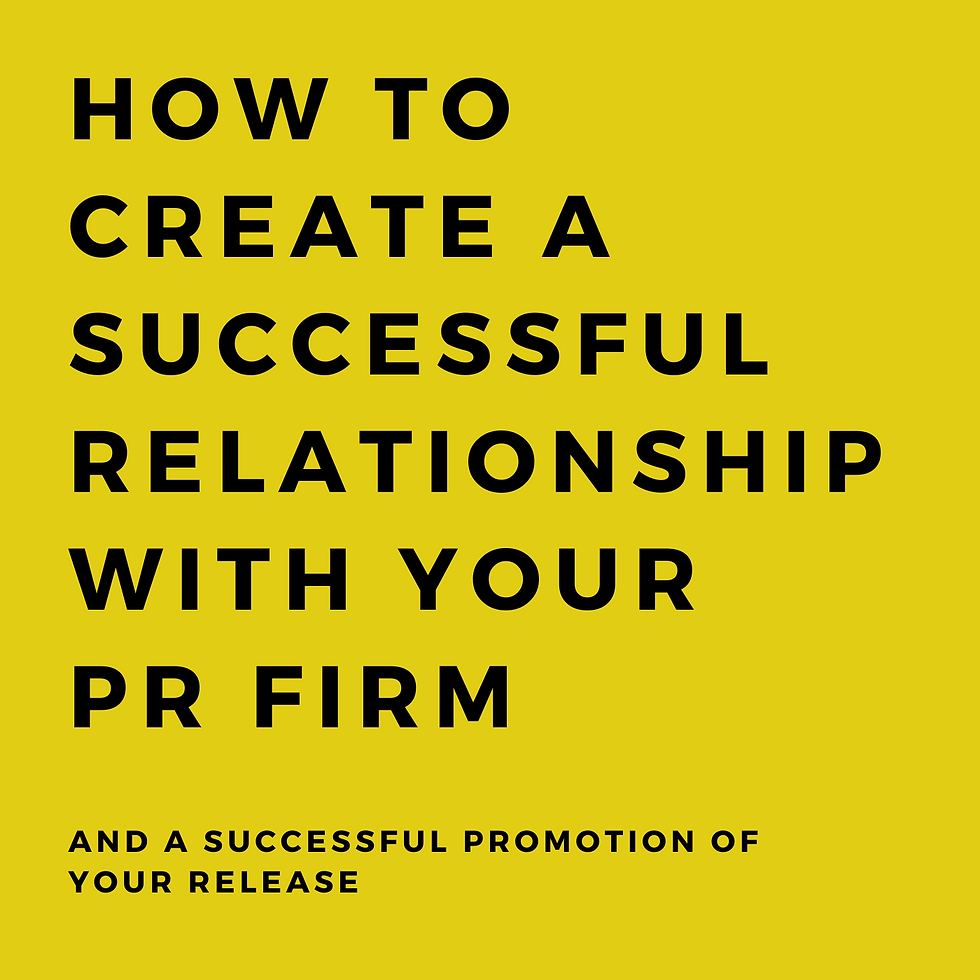Spotify Fake Playlists: Useful Tips & Case Studies (Pt. 1)
- Davide Pulito

- Oct 25, 2022
- 4 min read

We all agree with that. Getting your music promoted on Spotify is cool, damnly cool. In a period where the changes to the Facebook algorithm drastically reduced the reach of social posts, and Instagram does not offer the interaction that bands are looking for, Spotify has become a fast way to build a fanbase, visibility and, why not, solid references to get a future label deal.
Nevertheless, it is easy to remain fascinated by playlisters promising that your track may reach high streams, and in a very quick time. They speak as if the success is available, almost in your hands, and you can easily grab it by.. paying for it. The truth is that the promise of an "easy success" is exactly the opposite of what "hard work" means. You have a band, you rehearse at least once a week, you spend time in refining your songs, you look for gigs and so on..you know that the "easy success" does not exist. In order to avoid these playlists (and, as consequence, being able to get organic results), it is important to learn some basic notions that I am going to explain:
1) Usually these playlists have a majority of lesser known artists, so it is not normal that several thousands of people follow a playlist that almost solely features underground (so, unknown) artists;
2) You should pay to see your track added. Paying does not guarantee any filter, so you will probably see tracks with different production qualities and genres added;
3) After checking several playlists created by the playlister, you will see that these almost have the same number of followers: a signal that the playlister has bought bot-packages. Frankly speaking, growing several playlists (about different genres) is tough, so managing to have the same number of followers in each one, it's very, very unlikely;
4) Many of the playlisters accounts do not have any profile picture or, even worse, any follow. Be careful!
Now that you know a little more about how to recognize fake playlists, let's go to analyze some of them:
Case-study 1: Creative Music

This account has no followers, but the playlist has over 17.000 followers. The playlist is a generic one for rock, metal and pop-punk, so potentially, it can feature a pop-punk track close to a black metal one. Very strange. Also the way of communicating with the playlister is suspicious. After a few minutes from submitting the track, you get the information that you can be added by paying 15 $, and you do not receive any feedback about the production or songwriting quality. Even next submissions show that their emails are always the same, as if written by a bot.
I noticed that Creative Music has created a second account called "Creative Music Crew", with just one follower (without account pic) and 3 playlists with approx. 21.000 followers each. Same "philosophy" of the previous account: https://open.spotify.com/user/31o6cshwvyvnym5wrjkqrziv464a
Case-study 2: Janus Audio

This account has no followers, while the playlist has over 19.000 followers. Here the audience is even more extendend than in the previous one, so metal and rock tracks can be added together with others from metalcore, indie, emo, and hardcore. Also the communication with Janus Audio is strange. A few minutes after the submission, you get an email (without feedback about the song quality) with a list of playlists and prices (£20 for 1 listing and £10 for each extra playlist).
What makes this playlister totally to avoid is that he also has another Spotify account called "Tuned" (https://open.spotify.com/user/31nc3jzgofw6ycglyyugxcxolgmq), without profile pic, followed by 3 people, but with 3 playlists having between 23.000 – 30.000 followers each! How is that possible?!
Case-study 3: Lorenzo Bondioni

This is a very popular playlist but, unfortunately, it is another one to avoid. The playlist cover is well curated and there are some huge acts represented, but the playlist has over 89.000 followers while the account no one. Also in this case you should pay, and the fee is not small: 29 €. The playlister drops a short message saying "I listen song, and is perfect for the Playlist! Awesome! Love it!". There is no explanation of why the track suits you. No comment about production quality or songwriting. It is cool because you can pay.
I hope to have provided some key notions about how to move in this big jungle called Spotify. Of course I do not want to say that all playlisters are scammers. The wide majority of them does it for passion and because they like to know new bands. Anyway it is important for you to make the right choice and being aware that, if your tracks will be added to those fake playlists, you will seriously risk to destroy your algorythm on Spotify, and the possibility of promoting your music as well.
I want to thank Niklas Runstad for the inspiration. Niklas is fighting against fake playlisters from a long time and his playlist "Metal - Brilliant Minds" https://open.spotify.com/playlist/7vcVcYvJN94jI8obsVM66i, guesting djent, prog, nu-metal, and experimental tracks, is a good example of how a playlister should be: honest and competent.
And remember: success comes step-by-step! Don't rush!
Many thanks for taking time to read this article, more case studies will come during the next weeks.
Recently I wrote another article with tips about how to approach a metal or rock PR agency. You find it here: https://www.themetallistpr.com/post/how-to-approach-a-metal-or-rock-pr-agency
If you wish to pitch one track on Spotify playlists, feel free to drop us an email to themetallistpr@gmail.com
_.jpg)



It's really easy to promote any song on Spotify. All you need to do is use spotify promotion https://artistpush.me/blogs/news/top-5-best-spotify-promotion-companies . This is the most effective advertising tool on this music platform.
Spotify is the best streaming platform. Every talented singer has a chance to become popular here.